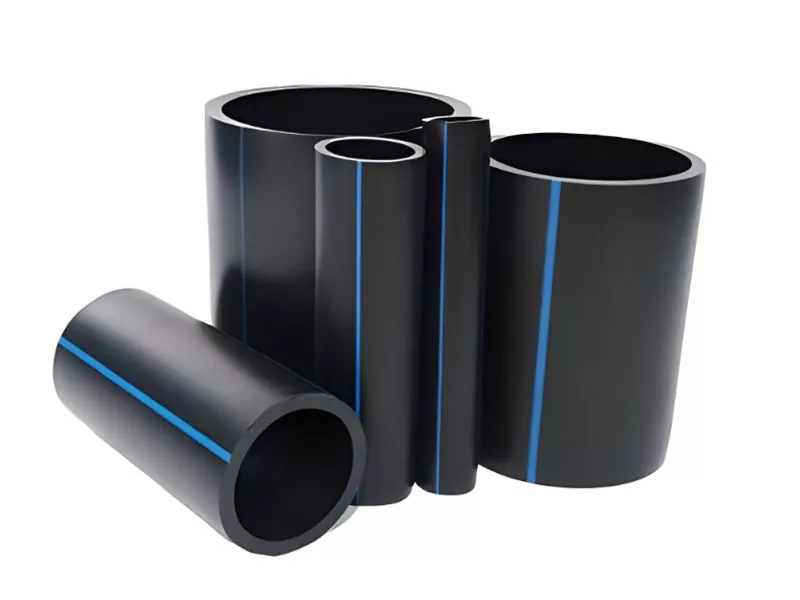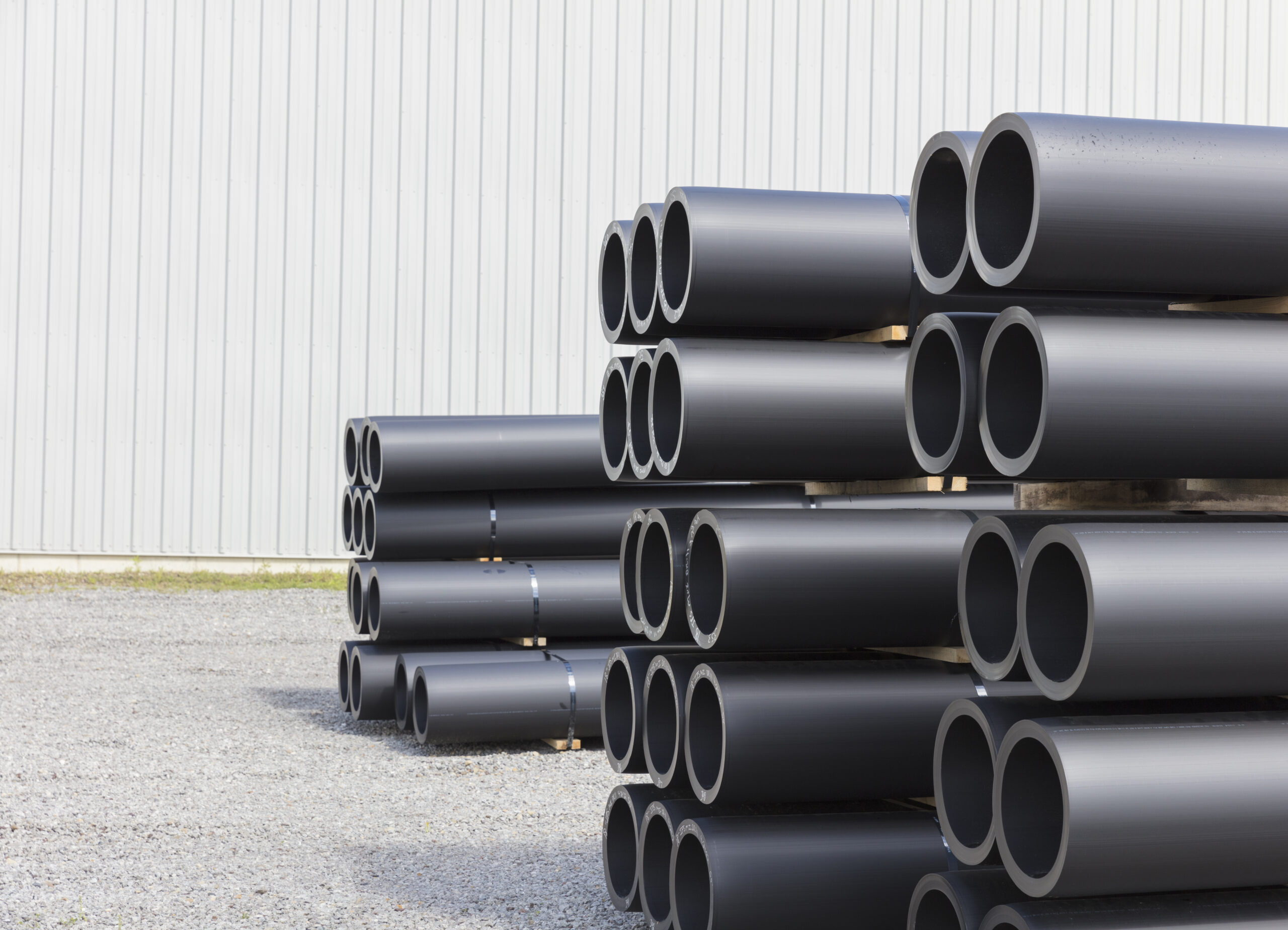Where Contractors Can Get Midland TX HDPE Pipe Fittings in Stock for Construction Projects
Understanding the Secret Benefits of HDPE Pipe for Water and Wastewater Administration
Making use of HDPE pipeline in water and wastewater management provides numerous benefits that warrant consideration. Its outstanding toughness and lengthy life-span make it a preferred option for numerous projects. Additionally, the product's resistance to corrosion and chemical damages improves its integrity in various environments. The benefits expand beyond simply longevity and resistance. Texas hdpe pipe manufacturer. Exploring its cost-effectiveness and environmental impact discloses much more engaging reasons for its extensive adoption in contemporary facilities
Remarkable Durability and Durability

HDPE pipeline sticks out for its outstanding durability and durability, making it a favored selection in water administration systems. Constructed from high-density polyethylene, these pipes can endure considerable stress and anxiety, making certain reliable efficiency over time. Their robust nature enables them to withstand severe ecological conditions, including temperature level variations and soil activities, which can cause other products to fall short.
The life expectancy of HDPE pipes usually exceeds 50 years, providing an affordable solution for towns and industries alike. Furthermore, the material's lightweight residential or commercial properties simplify setup, decreasing labor costs and timeframes. This longevity minimizes the demand for frequent repairs or replacements, further enhancing its economic charm.
In water management applications, the reliability of HDPE pipelines implies less disturbances and improved solution connection, making them integral to lasting framework growth. The combination of resilience and durability solidifies HDPE's function as a cornerstone in reliable water administration services.

Resistance to Rust and Chemical Damages
While many products catch rust and chemical damage gradually, HDPE pipelines exhibit impressive resistance, making them optimal for different water monitoring applications. This strength comes from the molecular framework of high-density polyethylene, which is naturally non-reactive and does not corrode like metals or degrade from direct exposure to harsh chemicals. Because of this, HDPE is very effective in atmospheres with aggressive substances, such as wastewater systems that may have acids, bases, and organic solvents.
In addition, HDPE pipes can endure ecological variables such as dirt level of acidity and saline problems, additionally boosting their viability for varied applications (Midland TX HDPE Pipe Fittings in Stock). Their ability to preserve structural honesty gradually decreases the risk of leaks and failings, which is essential in guaranteeing the safety and integrity of water distribution and wastewater monitoring systems. Subsequently, the resistance to deterioration and chemical damage considerably adds to the total efficiency and longevity of HDPE piping remedies
Cost-Effectiveness and Economic Advantages
When taking into consideration the economic implications of water management systems, the cost-effectiveness of HDPE pipelines comes to be evident. These pipes supply lower installation and maintenance costs compared to conventional products like metal or concrete. Their lightweight nature simplifies transportation here and installation, causing decreased labor expenses. Additionally, HDPE pipes display a lengthy lifespan, frequently going beyond 50 years, which equates to less replacements and long-term cost savings.
The resistance of HDPE to rust and chemical damage minimizes the need for costly fixings and replacements. The pipes additionally sustain efficient water circulation, reducing power expenses connected with pumping systems. By minimizing leaks and water loss, HDPE pipelines contribute to considerable financial advantages for districts and markets alike. Overall, the initial investment in HDPE piping can yield substantial financial returns over the life-span of the water administration system, making it a prudent option for sustainable infrastructure growth.
Environmental Sustainability and Lowered Effect

Versatility and Adaptability in Installment
Because of their unique properties, HDPE pipelines offer amazing versatility and adaptability in installment, making them ideal for a large range of applications. Their light-weight nature permits less complicated handling and transportation, reducing labor costs and setup time. HDPE pipelines can be curved and formed to fit numerous terrains and project requirements, which is specifically valuable in challenging settings.
In addition, their resistance to corrosion and chemical damage allows for installment in diverse setups without the demand for specialized protective coverings. The ability to fuse joints creates a continuous, leak-free system, improving the general integrity and reliability of the setup. HDPE's adaptability likewise accommodates ground movement, lowering the risk of damage in areas vulnerable to changing soil. Generally, these characteristics make HDPE pipes not just functional yet likewise a favored option for water and wastewater management systems.
Frequently Asked Concerns
Exactly How Does HDPE Pipe Contrast to PVC in Water Administration Applications?
HDPE pipe offers premium adaptability, resistance to deterioration, and durability compared to PVC. Its lighter weight facilitates easier setup, while its long life expectancy lowers replacement costs, making HDPE a recommended choice in water monitoring applications.
What Is the Lifespan of HDPE Pipes Under Common Conditions?
Under regular conditions, HDPE pipelines can have a life-span varying from 50 to 100 years. Their durability and resistance to rust add to their long-term performance in numerous applications, making them a reputable selection for framework.
Are HDPE Pipes Recyclable After Their Life Span?
Yes, HDPE pipes are recyclable after their life span. American Plastics HDPE Pipe Manufacturing. They can be processed and repurposed into brand-new items, considerably decreasing ecological impact and advertising sustainability within the sector, making them an eco-friendly selection for piping solutions
What Is the Setup Process for HDPE Pipeline?
The installation process for HDPE pipelines includes site preparation, trenching, pipe blend or mechanical signing up with, backfilling, and pressure screening. Appropriate techniques ensure a resilient and reliable system for transporting water and wastewater effectively.
Can HDPE Pipeline Be Used for Both Potable and Non-Potable Water Solutions?
Yes, HDPE pipes can be made use of for both drinkable and non-potable water supply. Their versatility, resilience, and resistance to rust make them appropriate for various applications, guaranteeing risk-free and effective transport of water in different contexts.